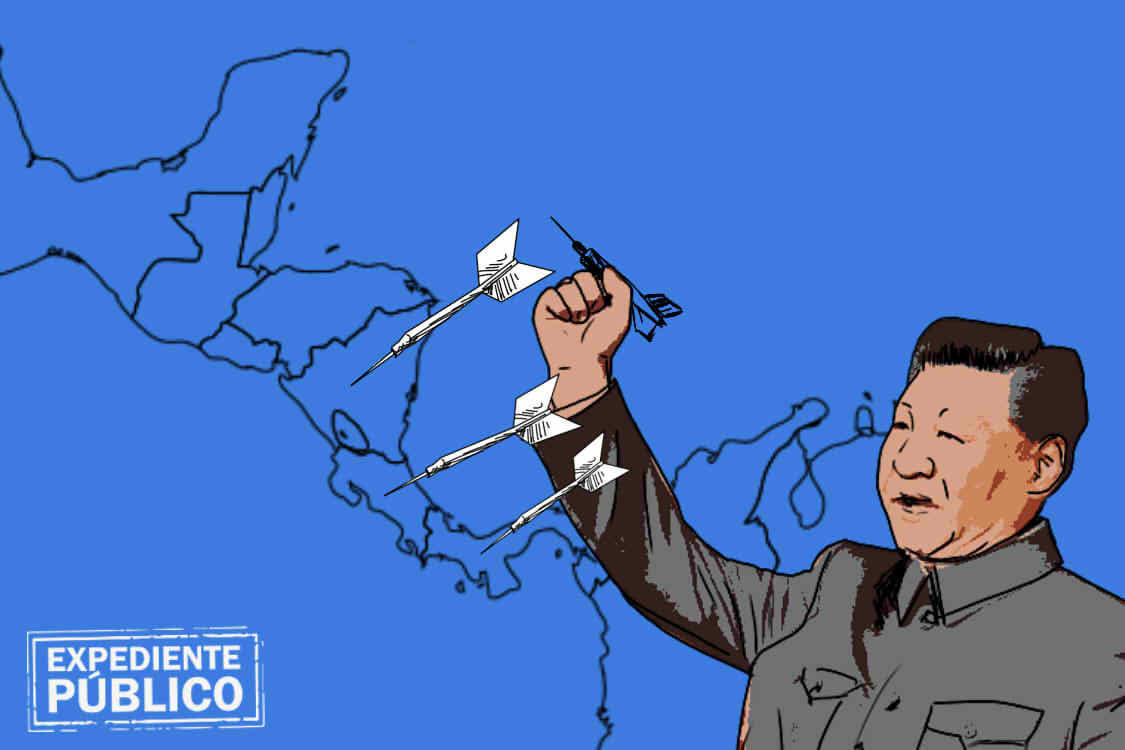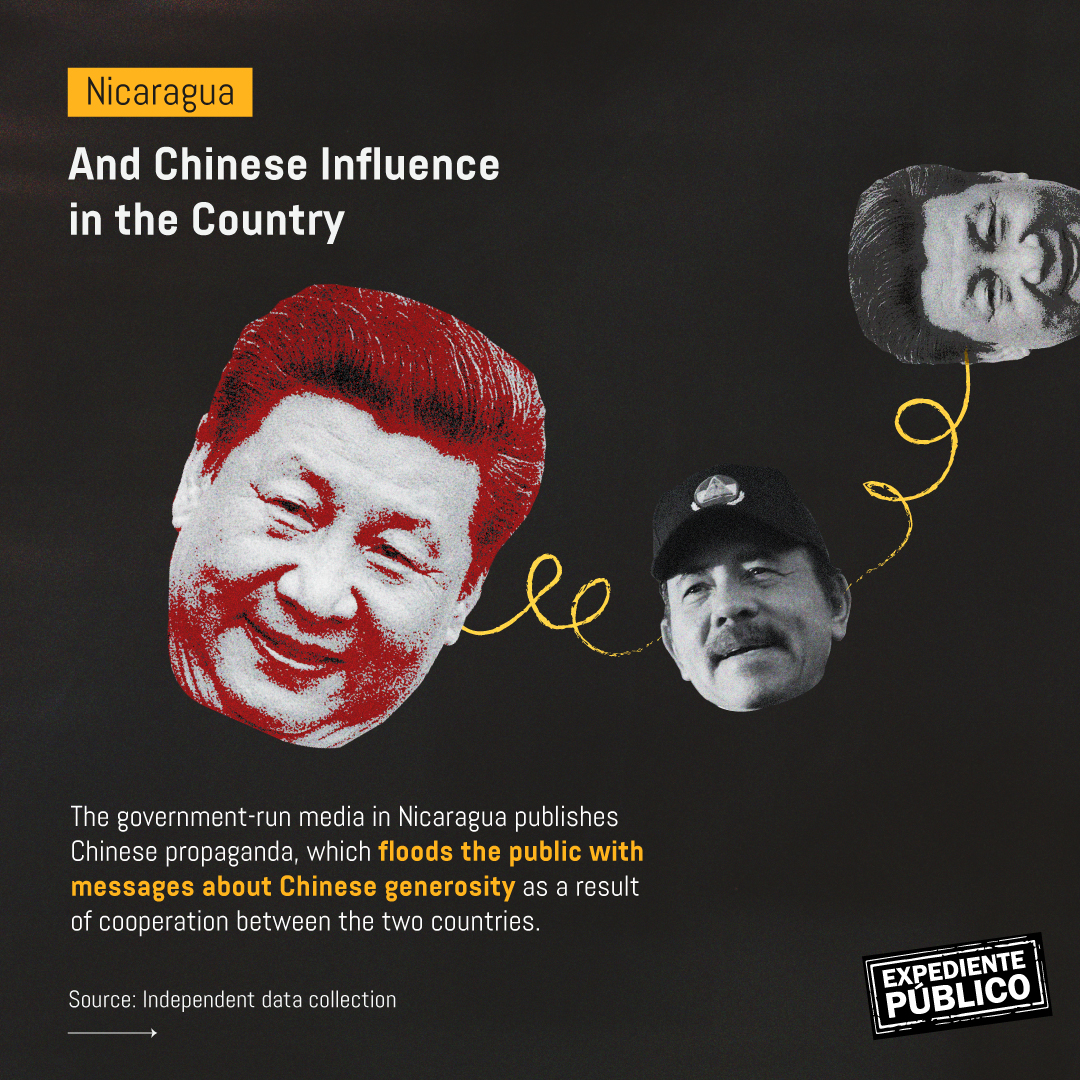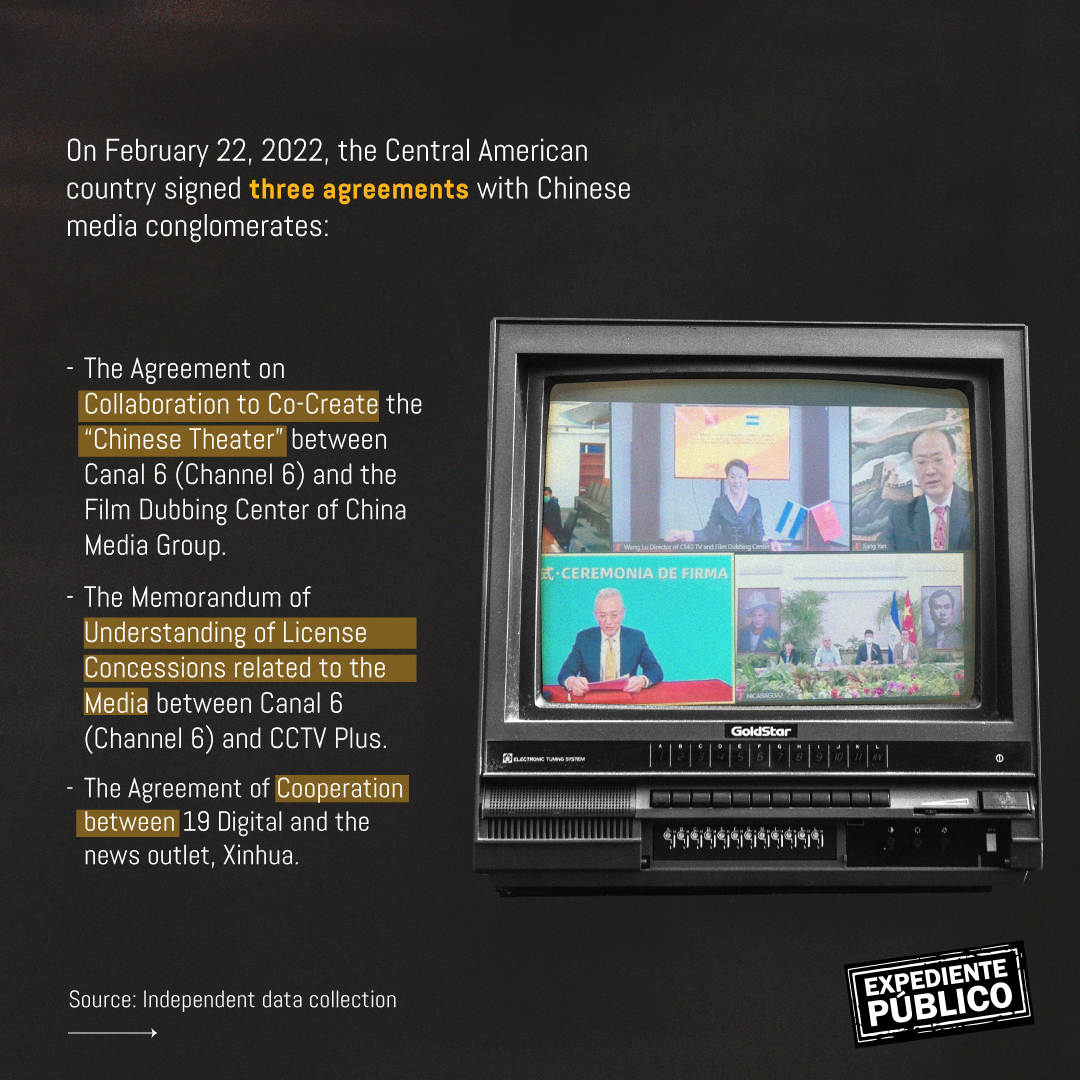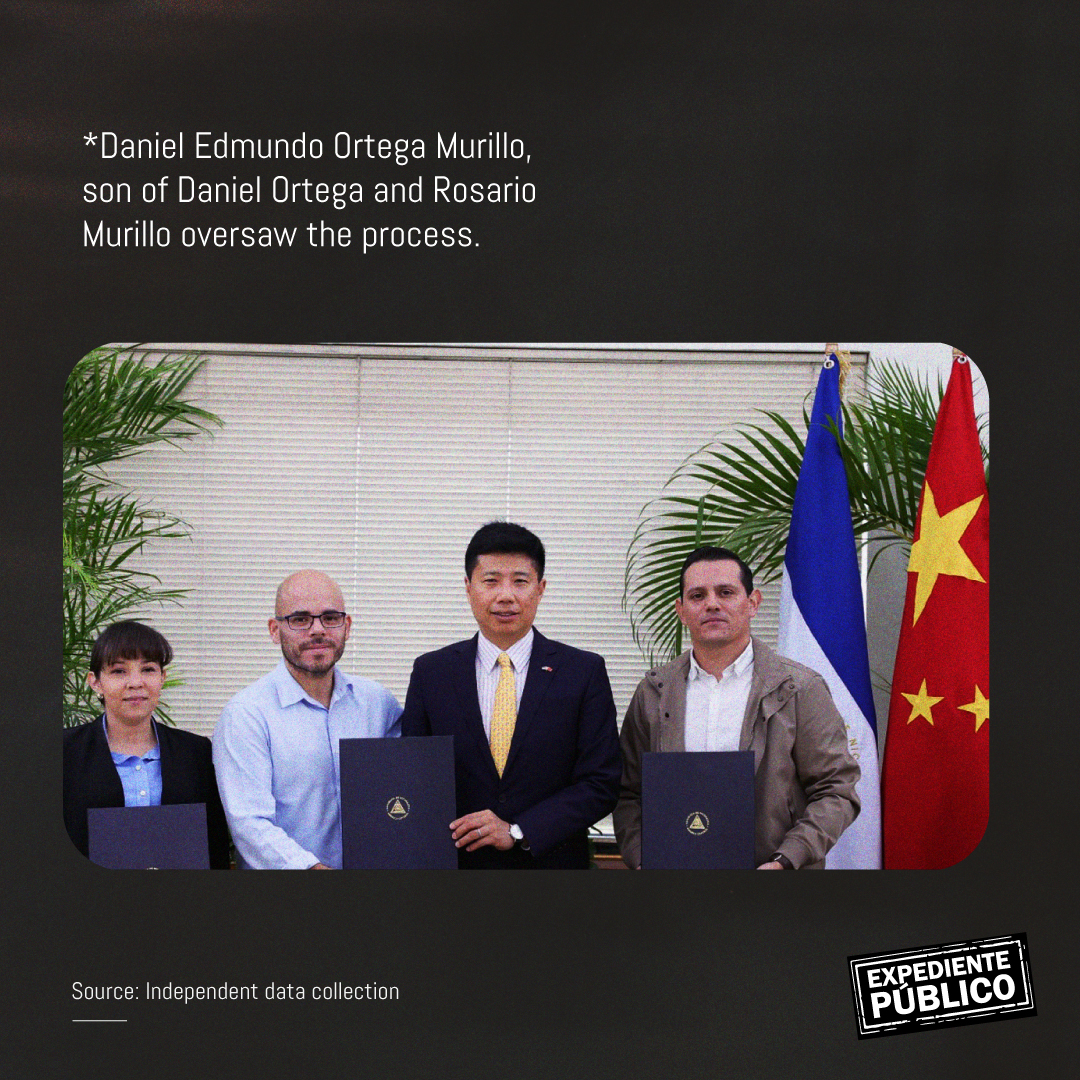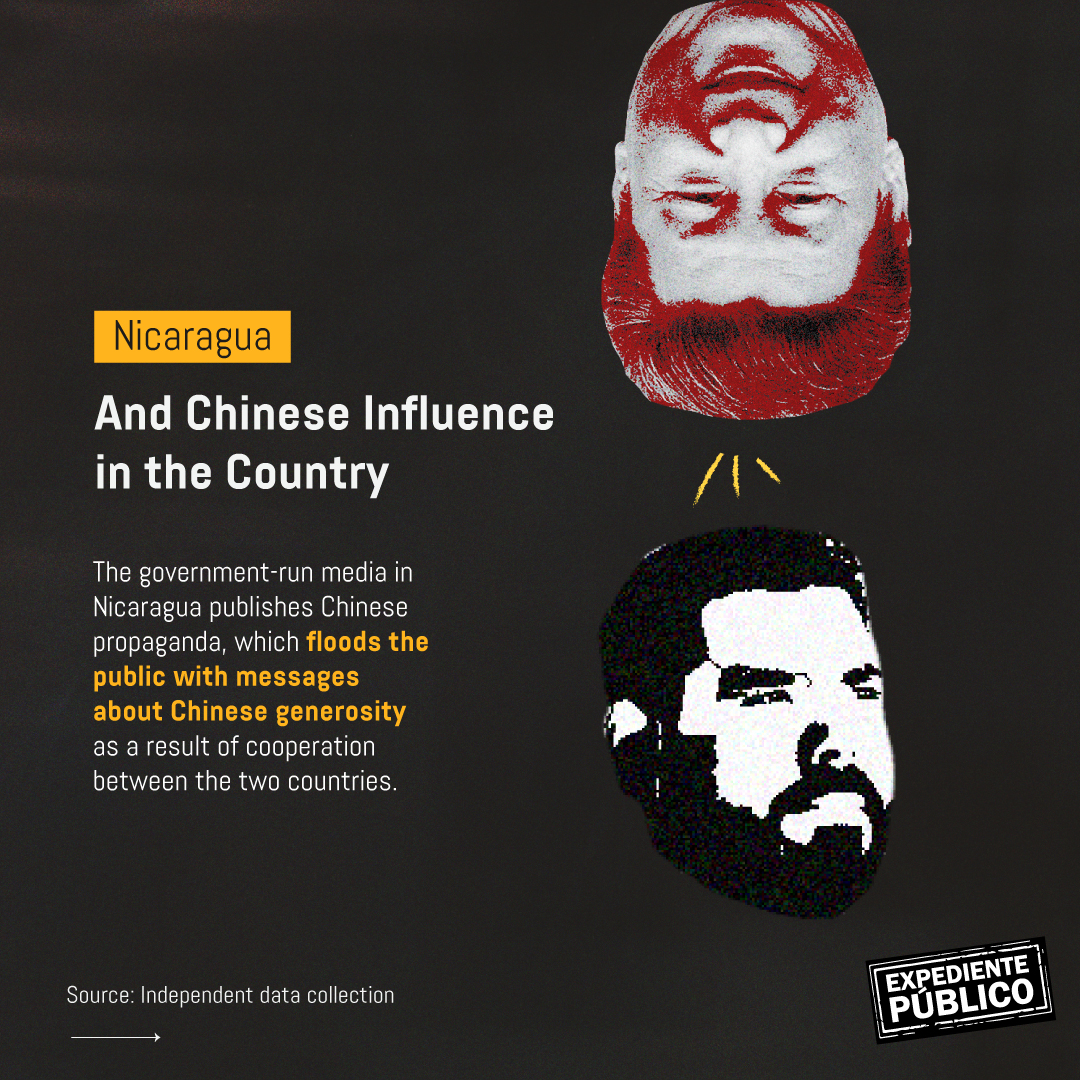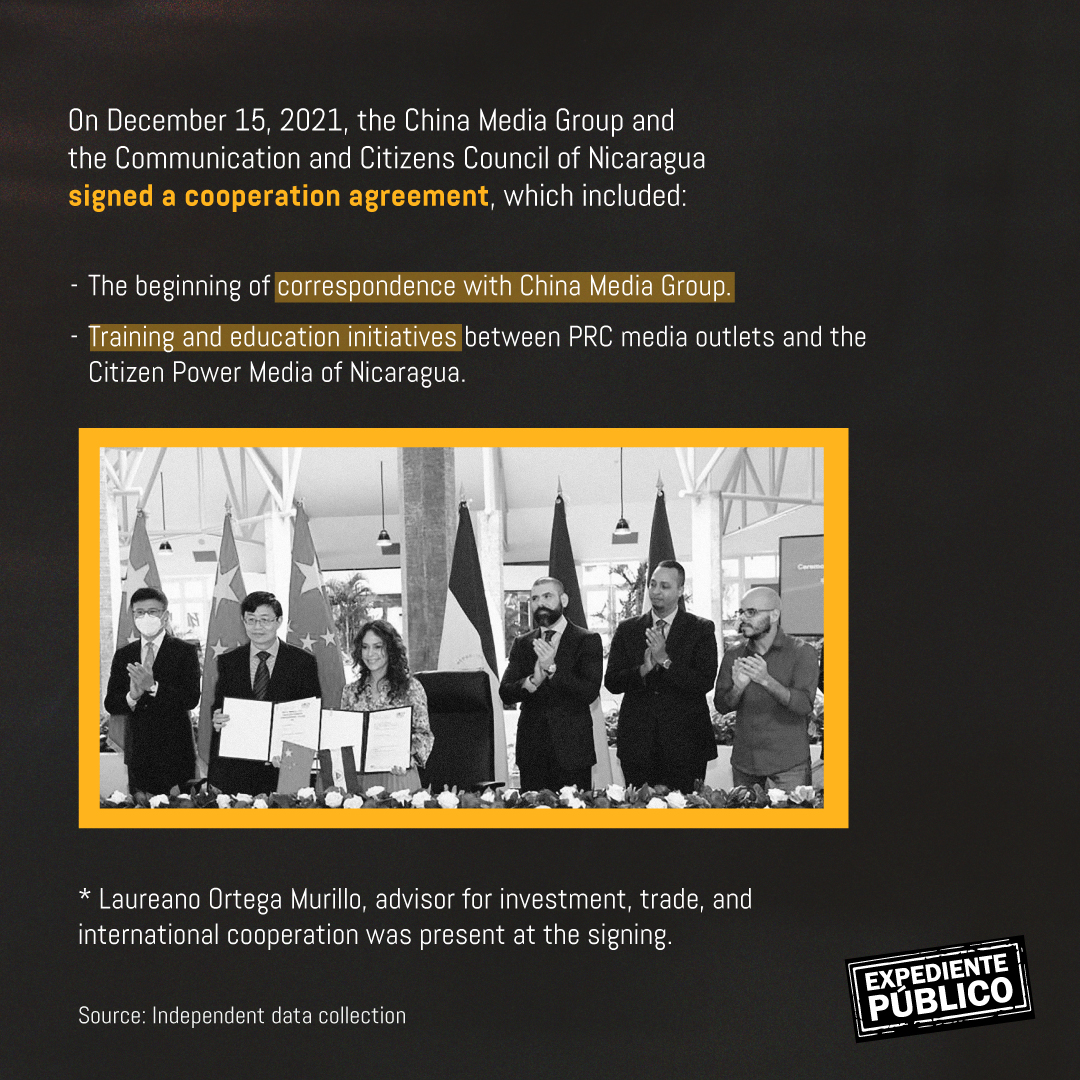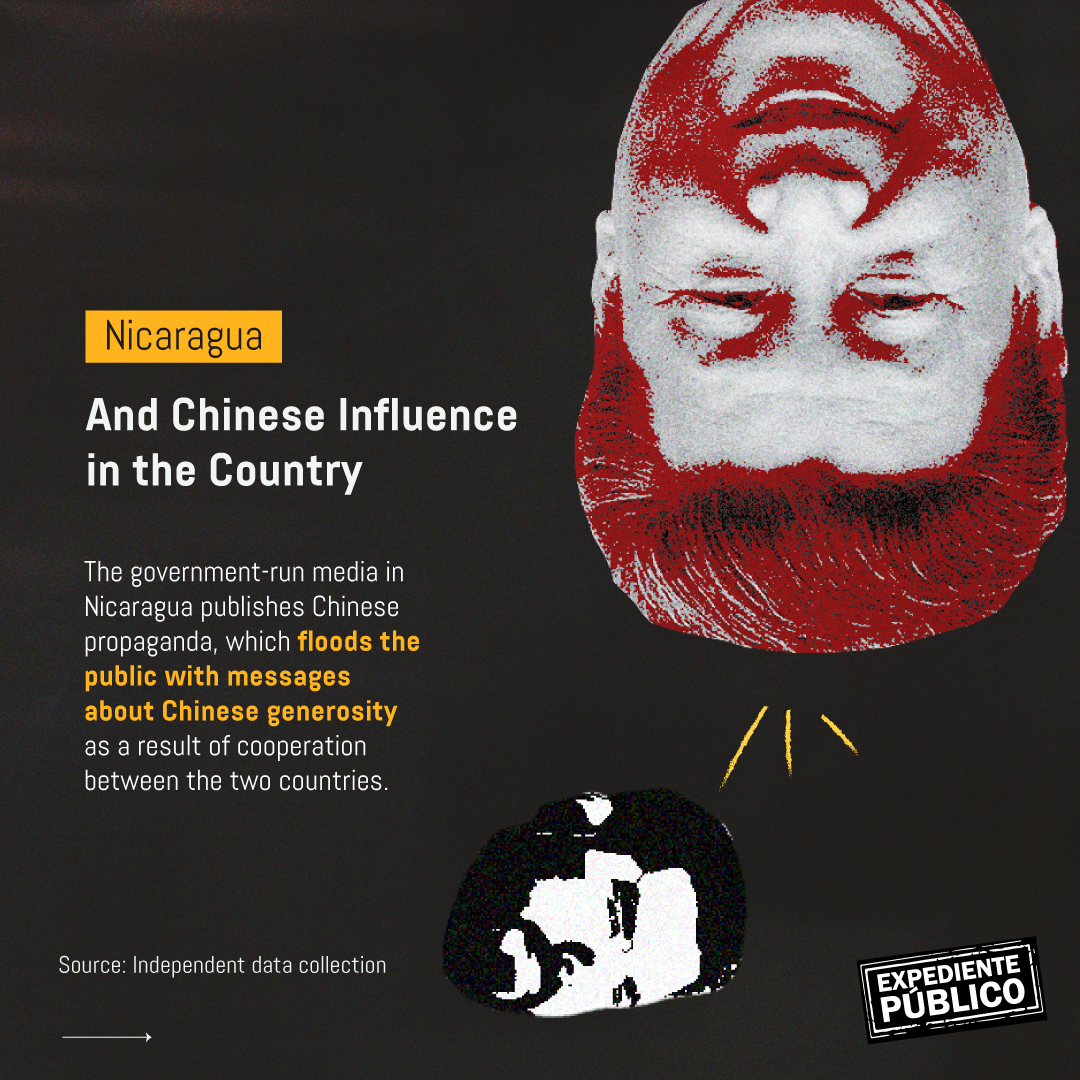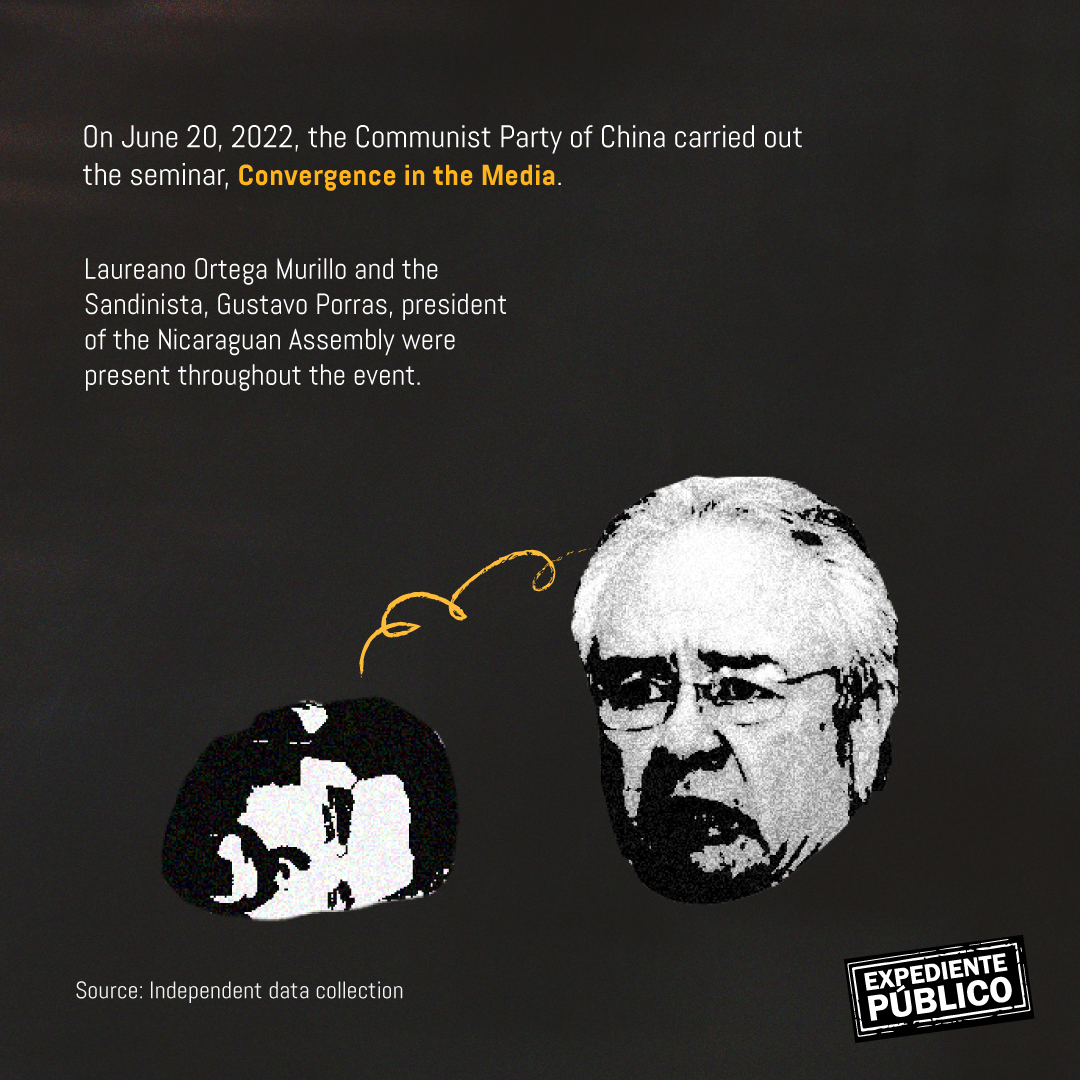*After Peru, Panama is the second Latin American country with the highest levels of Chinese influence, according to the China Index.
**China’s means of achieving influence are similar to those in Panama, Costa Rica, and Nicaragua, three countries where the Asian country has established relationships during different decades.
Expediente Público
In the last 15 years, the People’s Republic of China (PRC) has improved its level of influence in Central America, which it has achieved through the use of different methods of deterrence and the political loyalty of various countries in the region.
Until 2007, China was more of a stranger to the Central American region than anything else. All of the countries in the region recognized the Republic of China (the official name of Taiwan) until Costa Rica established diplomatic relations with the PRC in 2007.
Panama followed Costa Rica a decade later. The next year, El Salvador also broke diplomatic relations with Taiwan, and Nicaragua followed the same path in December 2021.
The China Index, a study presented in December 2022 by the Doublethink Lab analyzes data from 82 countries in nine regions from March 2021 to March 2022 and investigates three of the four Central American countries that maintain diplomatic relations with the PRC: Panama, Costa Rica, and Nicaragua.
The most emblematic case is that of Panama, which ranks 23 in the China Index but is the second Latin American nation with the most Chinese influence after Peru.
Strategic Moves
Panama established diplomatic relations with China in 2017. Following this move, the Asian giant began a series of strategic steps toward influence in politics, the economy, the media, technology, and security.
It is not uncommon that the PRC pays for trips for reporters from the local media, academics, politicians, and members of think tanks to visit China. China’s level of influence is such that there are public figures that are willing to deny the country’s human rights abuses against the Uighurs and maintain an anti-Taiwan or anti-protest discourse, particularly regarding Hong Kong.
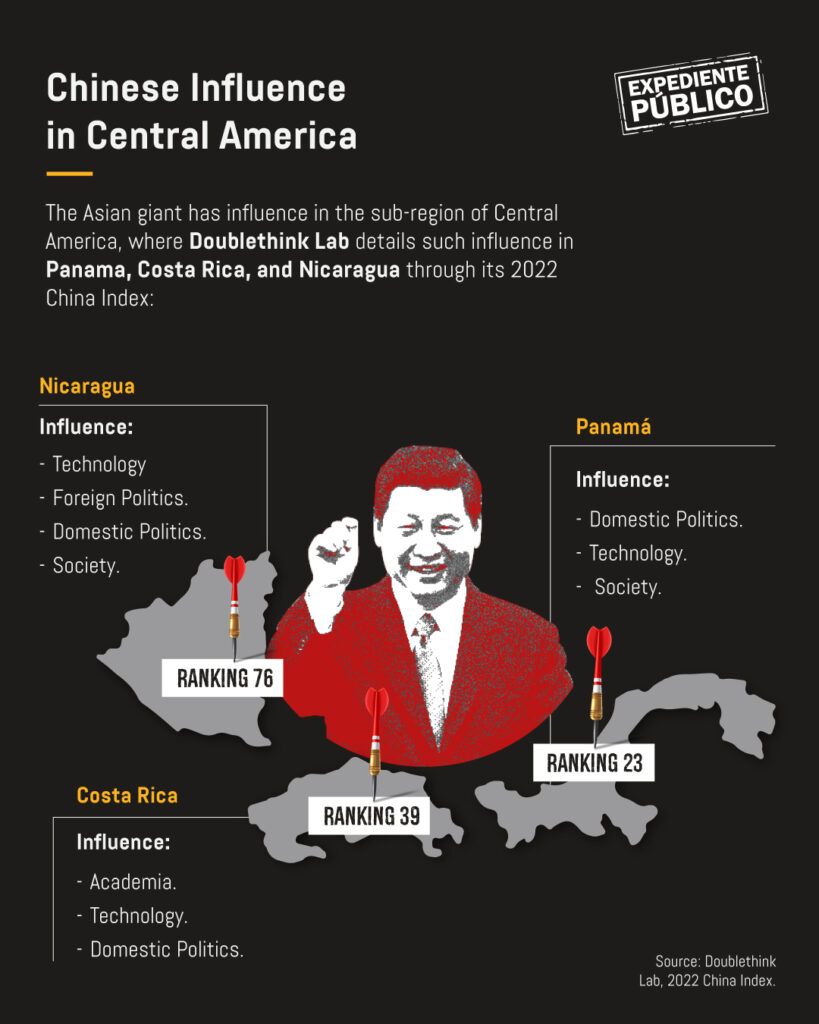
It is normal in countries where China maintains diplomatic relations, as is in Panama, that there are reporters, local media, and influencers who receive training from the PRC state media or entities connected with the PRC.
There are also media outlets with complete or partial ownership by Chinese citizens and PRC corporations, and there are those that include free or discounted content provided by the media financed by the Chinese State. It is also common to see advertisements for the Chinese government in Panamanian media outlets or social networks.
But the worst part, according to the 2022 China Index, is the existence of personalities in the media and celebrities, including reporters, journalists, and commentators, that negated the prevalence of human rights abuses in China.
Moreover, officials of the central and regional governments, as well as Panamanian celebrities regularly publish or share narratives that reinforce PRC propaganda.
This is the case of Julia Yao Villalaz, the so-called “international analyst” and honorary president of Panama’s Center of Strategic Asian Studies (CEEAP), which published an article “The truth about human rights in China.”
The article suggests that there is a supposed Western conspiracy to defame China through whistleblowing on human rights and that China positively contributes to the human rights cause.
In Panama, local groups and organizations have also identified with phrases such as the “Promotion of the Pacific Reunification of China” and regularly publish their viewpoints on the topics of Taiwan, Hong Kong, Tibet, and Xinjiang. All of these organizations favor China in terms of ideology.
Chinese Corporations’ Influence in Panama
In Panama, Chinese corporations have significant influence in different national spheres, from Academia to technology. There are even universities that have established research associations with entities connected to the PRC, such as Huawei, Tencent, and Alibaba.
Panama has also established a Confucious Institute, which promotes language learning and Chinese culture. In addition, the Panamanian government has announced plans to include Mandarin as a foreign language in primary education and receives educative books and professors for free or for a subsidized fee from the PRC.
Entities with connections to the PRC also possess, operate, or substantially control critical infrastructure, such as ports, powerplants, and digital data centers, as well as sensitive sectors, such as those of biotechnology and primary materials, among others, in Panama.
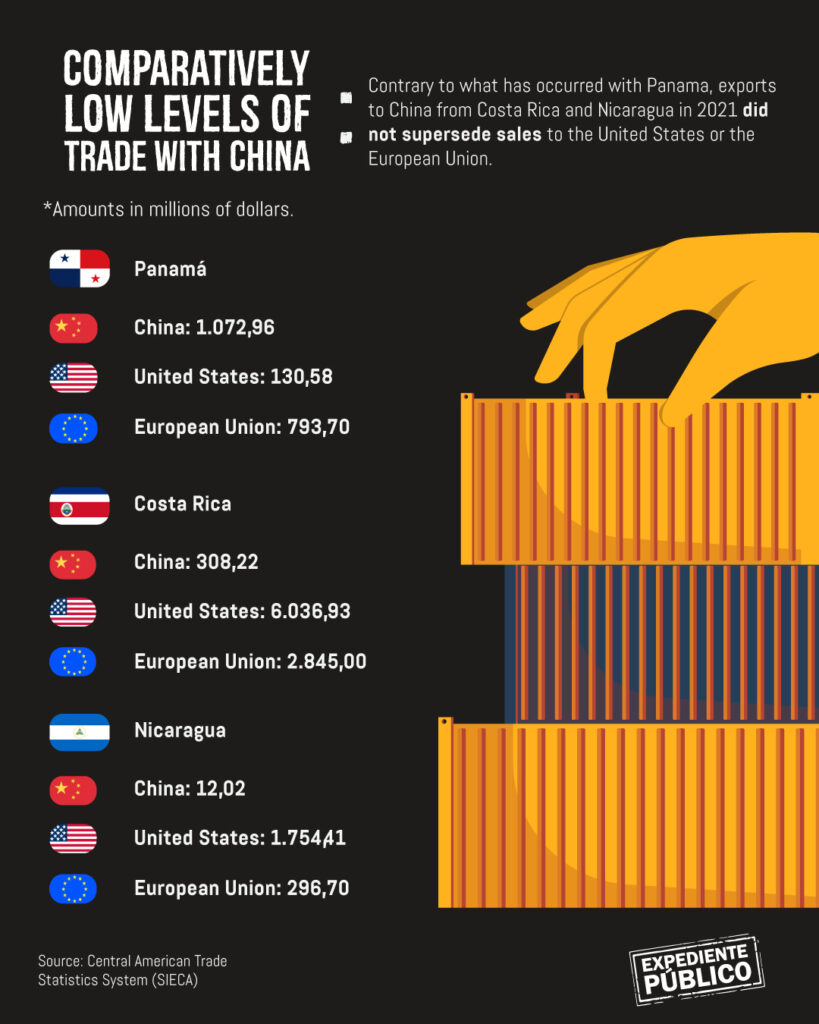
As has happened in the countries neighboring China, entities with ties to the PRC embargoed infrastructure or territories for not closing debts on time, according to the 2022 China Index.
Technological Influence
According to the China Index, “Chinese entities and corporations have also implemented systems of video and internet tracking to promote civil obedience; these technologies also include facial and voice recognition and other apps that use biometrics achieved through artificial intelligence.
Entities with ties to the PRC, such as China Mobile, China Unicom, and China Telecom, in addition to their subsidiaries, provide telecommunications services and are authorized suppliers of equipment and services related to technology for government and security agencies.
Chinese Influence in Costa Rica
Costa Rica established diplomatic relations with the PRC in 2007. Costa Rica was the first Central American country to establish such a relationship with China and did so during the second term of Oscar Arias. In the China Index, Costa Rica ranks 39.
Since then, China has exercised influence in the media, the economy, academia, and the security sector in Costa Rica.
As in other countries, the PRC invites journalists and media outlets in Costa Rica to visit China and integrates them into the News Alliance of the Silk Road and Zone. The PRC uses the same strategy with universities and think tanks, which the Chinese government connects to Chinese corporations and where a Confucious Institute has been established.
According to the report presented in mid-December in Berlin, Germany, the PRC has established recruitment programs in Costa Rica, such as the Program of a Thousand Talents or the Program of Changjiang Fellows. Entities connected to China have also been involved with the design of study plans for schools and universities, such as courses on Asian history, modern politics, etc.
Trade
Costa Rica has also established a free trade agreement with the PRC and has allowed for special economic zones, free trade zones, industrial parks, etc. to attract outside investment and economic participation from the PRC.
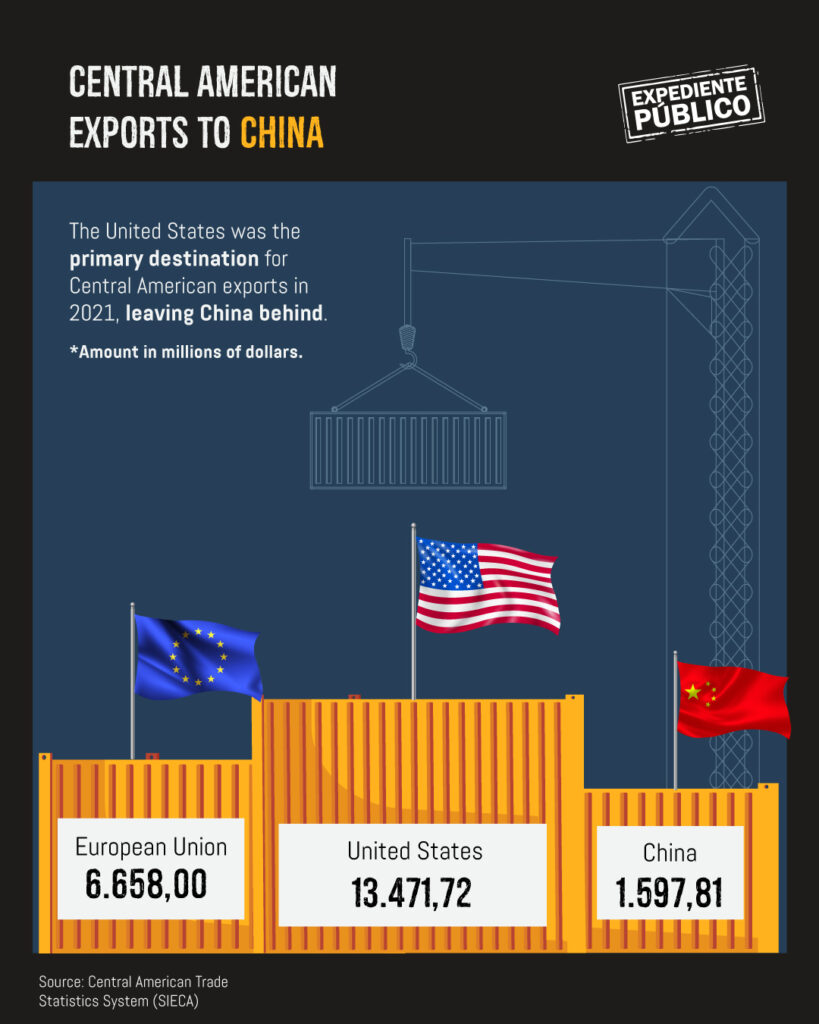
Groups and local organizations have also been established in Costa Rica that defend China on the topics of Taiwan, Hong Kong, Tibet, and Xinjiang.
Security
One worrisome fact is that not only in Panama but also in Costa Rica the presence of ‘pandillas’ or organized criminal groups with ties to the PRC, also known as ‘Triadas,’ has been detected.
In Costa Rica, there have been police reports that have pointed to the Triadas’ role in threatening and using violence to intimidate and punish Chinese dissidents who have criticized the PRC.
In November 2019, Costa Rican media outlets reported that the journalist, Greivin Moya had received threats from the Triadas and that he had to be protected by local authorities after reporting on their operatives in the Costa Rican country.
Moreover, there are reports of cyber attacks directed at the government, critical infrastructure, and companies that are suspected to have originated in China.
As in other countries, telecommunications countries have signed agreements to adopt hardware or technical specifications for 4G and 5G cellular networks produced and developed by Huawei, ZTE, and other PRC companies.
China’s Recent Arrival in Nicaragua
China’s relationship with Nicaragua was only re-established in December 2021, following more than 31 years since former President Violeta Chamorro broke diplomatic ties with the Asian country to recognize Taiwan, which was a primary donor of social programs not only for her government but also for the Ortega-Murillo dictatorship.
Daniel Ortega had re-established relations with China in 1985, but Chamorro broke those five years later. Now, diplomatic relations have been restored by the Ortega-Murillo regime, and Ortega is the most enthusiastic spokesperson for Chinese geopolitics in the region.
However, Nicaragua only ranks 76 in the China Index. The level of Chinese influence in the Ortega-Murillo government is absolute, which has led to the disappearance of independent media outlets and only permitted the existence of universities and think tanks that support the Chinese regime.
The Ortega-leaning media outlets publish content from the Chinese state-run media, and according to the report from the academic research group, they have received financial support from people or entities with ties to the PRC.
The regime regularly publishes and shares narratives of propaganda in favor of the PRC and has allowed Chinese telecommunications companies to operate freely in the country to adopt hardware or technical specifications for 4G and 5G cellular networks produced and developed by Huawei and ZTE, among others.
The national entities with ties to the PRC are authorized suppliers of equipment and services for government, military, and security services in Nicaragua.
Moreover, politicians and government employees have taken trips to China financed by the PRC or Chinese entities.

